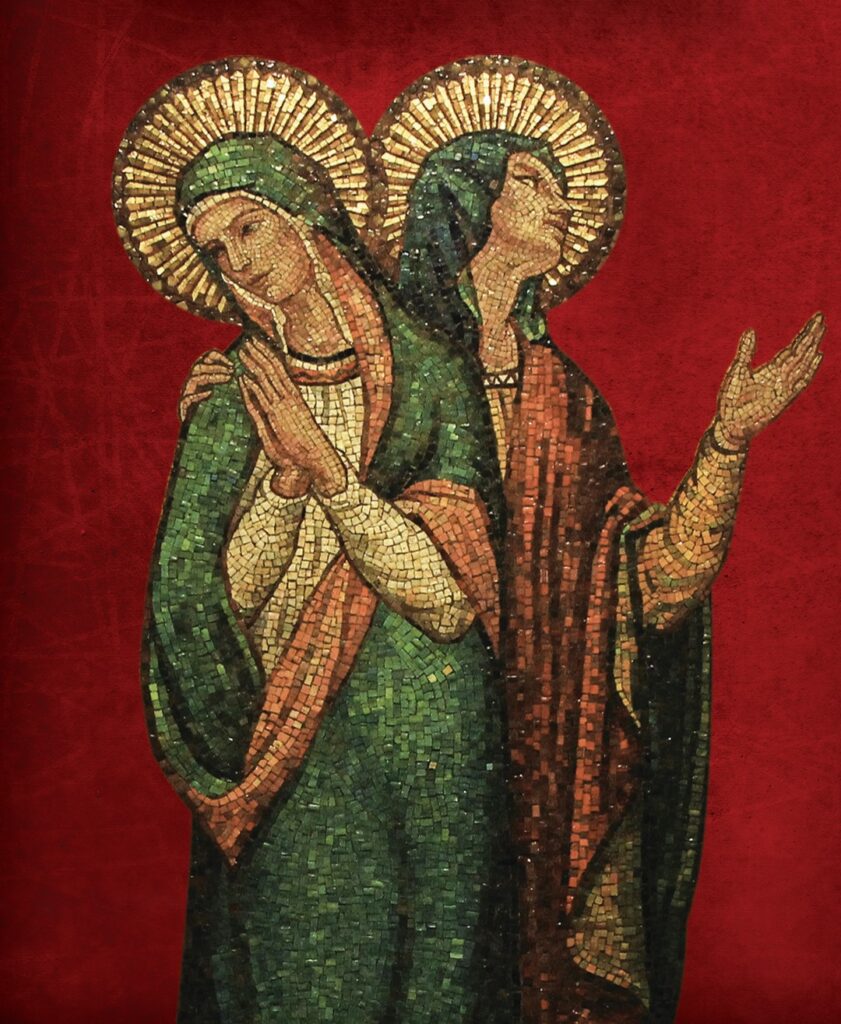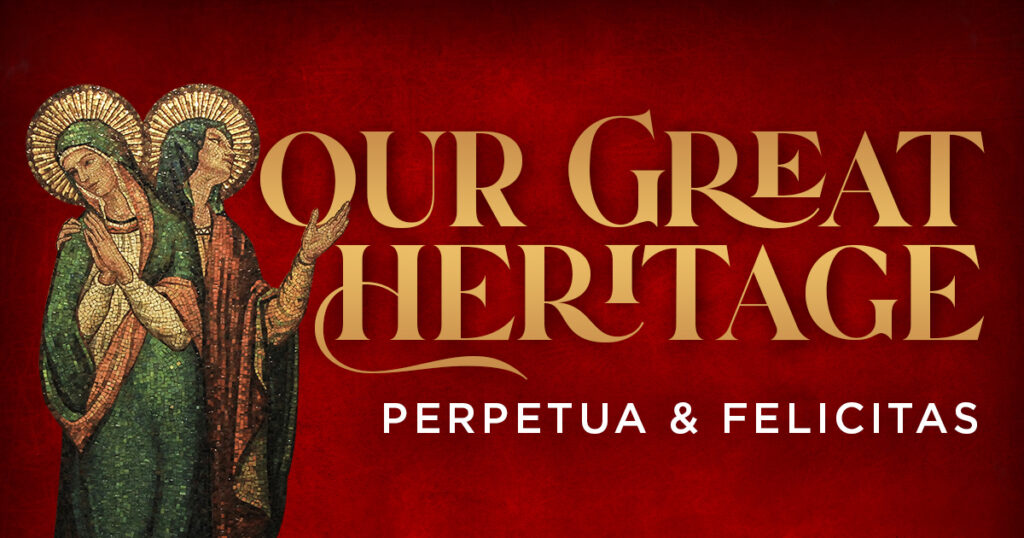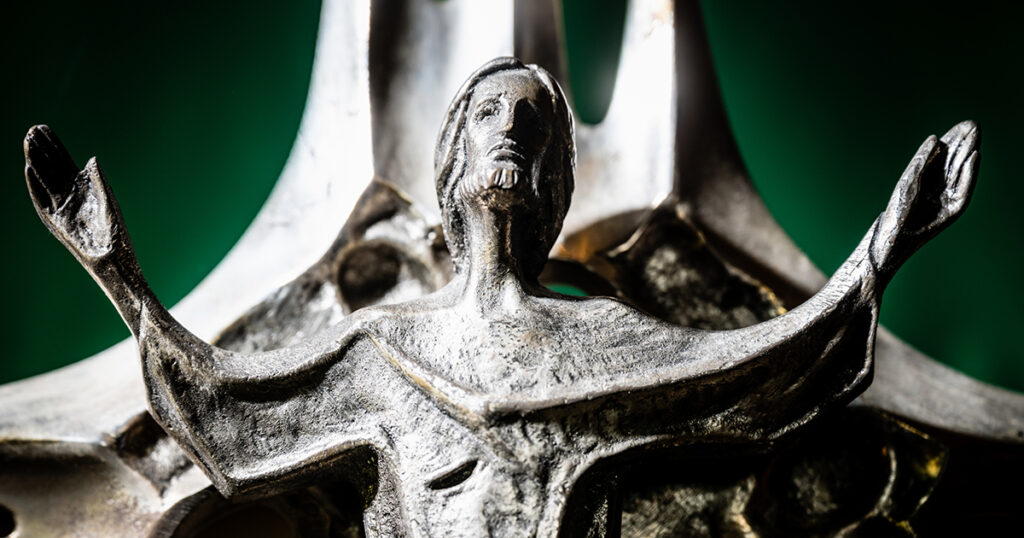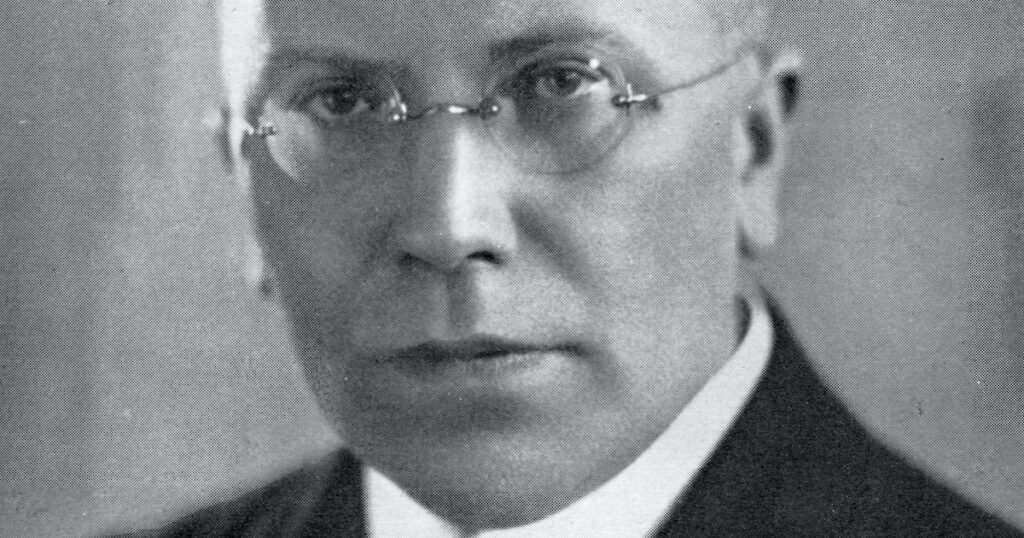Perpetua and Felicitas
d. A.D. 203
These two women faced death on account of their faith, supporting one another in friendship and trusting always in the love of Christ.

In this series, Lutheran historian Molly Lackey will trace the history of the church, from the time of the apostles through the twentieth century. As the Body of Christ, our history transcends time, country and citizenship: “God’s Word is our great heritage.”
Imagine you’re in a Roman amphitheater. Maybe you’re there as a spectator: a wealthy paterfamilias, a member of the imperial entourage, or just a day laborer with extra cash and time to kill. Maybe you work there — maybe you’re a guard, or you sell food (“Get your stuffed dormice here!”), or you’re a slave, cleaning or cooking. Maybe you’re a gladiator, an actor, a chariot racer — or an executioner. Whoever you are and whatever the reason you’re in the amphitheater today, you’re a good Roman citizen, through and through. You know to say “Ave Caesar” — he’s a son of a god, after all — and you know that it’s your lovely, traditional system of rites and sacrifices that keep the wheels of your diverse and metropolitan society turning smoothly. Cultists and rabble-rousers have no place in the Empire. So when you hear about the Christians who will be featured in the blood sport today, you understand why: they’re bad for society, so the Emperor is making an example of them and providing you some entertainment in the process. But as you watch these Christians being led out into the arena, something strikes you: Two of them are women, and both very young. Someone nearby mentions that one of them is leaving behind an infant son, and the other gave birth to a daughter while in prison. You watch as they say a prayer together while the guards below unsheathe their swords and prepare to release the wild beasts. You expect the women to panic, or faint, or crumple to the floor. But they don’t. You watch them trace a cross on their foreheads, kiss each other on the cheek, and turn to face their deaths with eyes like flint. These two women have so much to live for — why are they throwing it all away?
Perpetua and Felicitas were Christian women who lived in Roman-controlled Carthage in North Africa in the late second and early third centuries. Perpetua was a young, married noblewoman and new mother; Felicitas was a slave, who was pregnant when she was arrested. The two were catechumens, part of a group of newly converted Christians preparing for Baptism who were arrested for their illegal faith. Christianity was seen as anti-social by the Roman government, who enforced a polytheistic paganism that blended together lots of cultures’ native religions, in an attempt to keep the peace across their huge empire.
Prisoners for their faith
What is special about these martyrs is that we have a diary that Perpetua kept while she was in prison, likely edited and shared after her death by the church father Tertullian. The diary is vivid, describing the emotional and physical pain Perpetua endured while separated from her baby, as well as the trials and strong faith of Felicitas and her other fellow-prisoners.
Perpetua’s father, who was not a Christian, visited her in prison three times to convince her to renounce her faith and save her life. He tried violence to scare her, he tried asking her to think of him and of her infant son, he tried grieving and great shows of emotion. Perpetua was deeply upset, but she refused to change course: She confessed that she was a Christian, prayed for and tried to comfort her father, and still refused to offer sacrifices to Caesar or renounce Jesus. For this, Felicitas and the others were condemned to the wild beasts in the amphitheater games held in honor of the emperor’s birthday.
But their time spent awaiting execution was not without incident. Perpetua was baptized, and Felicitas gave birth while in prison. It was illegal to execute a pregnant woman, and Felicitas had been worried that she would not be able to face martyrdom with her friends. She went into labor a month early, and so faced death alongside her brothers and sisters in Christ.
‘And take they our life’
The Christians went to their deaths with quiet joy and courage, in sure hope of Christ’s love and His promise of resurrection. While facing down the wild animals, Perpetua stopped to fix her hair, so that she would not appear disheveled or in mourning, and helped Felicitas back on her feet after she was trampled. They ultimately died by the gladiator’s sword. The editor of Perpetua’s prison diary describes the Christians’ deaths, noting that, before they died, they kissed one another with the kiss of peace.
When we sing Martin Luther’s famous Reformation hymn “A Mighty Fortress is Our God,” we sing:
And take they our life, Goods, fame, child, and wife, Though these all be gone Our vict'ry has been won; The Kingdom ours remaineth (LSB 656: 4)
Perpetua and Felicitas surely provide a stark example of this, being separated from their families, their children, and even their lives for the sake of Christ: “Do not fear those who kill the body but cannot kill the soul. … Everyone who acknowledges me before men, I also will acknowledge before my Father who is in heaven” (Matt. 10:28, 32).
You will likely not be called to make the same martyr’s sacrifice in your life — though around the world there are many who suffer violence, prosecution, loss of livelihood and even death for confessing Christ. But almost certainly you will find yourself in awkward situations with friends, family members or people you know, called on to share about God’s plan for how people ought to live and how Jesus saves us from our sins. Whether you face a martyr’s death or a death glare from somebody who thinks Christianity is a joke, the example set by Perpetua and Felicitas is an inspiring one.
May God give us faith, courage and love like Perpetua and Felicitas’, that in the face of evil we would find comfort in Christ’s own words, “Whoever finds his life will lose it, and whoever loses his life for my sake will find it” (Matt. 10:39).
Editor’s Note: The next installment of this series, on the church father Augustine, will be posted two weeks from today. Check back then or follow us on social media to catch it!
Image: St. Perpetua & St. Felicity, mosaic, National Shrine in Washington, D.C. Photo by Fr. Lawrence Lew, O.P., 2014; alterations made.







A very lovely and inspirational story of two brave and steadfast women. Thant we may be like them in our times of trial. Thank you for sharing!